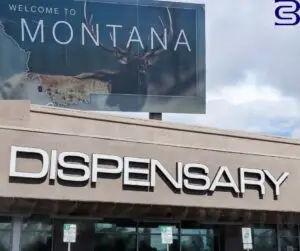 How do I apply for a Minnesota cannabis license?
How do I apply for a Minnesota cannabis license?
If you’re interested in applying for a Minnesota cannabis license, you’re in the right place. The process can seem daunting, but we’re here to guide you through how to become a licensed cannabis business for a dispensary or any other type of licensed legal cannabis business in Minnesota.
First, it’s important to note that the Office of Cannabis Management Board will be in charge of all licenses under the bill. They will issue 13 types of licenses including cultivator, manufacturer, retailer, wholesaler, transporter, testing facility, microbusiness, event organizer, delivery service, lower potency edible retailer, medical cannabis cultivator, medical cannabis processor, and medical cannabis retailer.
When can you apply for a cannabis license in Minnesota?
In 2024, the Office of Cannabis Management Board will open up applications for the cannabis business licenses. The official date for applications to open has yet to be announced, but it’s expected that the process will start at some point in that year.
Applicants must be 21 years old or older, and they must make sure their application is complete with all required supporting documents. Additionally, applicants need to demonstrate financial qualifications and have a clean criminal record.
Once an applicant’s application is complete and approved, they are then eligible to receive a license from the state of Minnesota. This license will allow them to operate a cannabis business within the borders of Minnesota and comply with all applicable laws and regulations.
What are the requirements for a cannabis business license in Minnesota?
To apply for a license, you must be a resident of Minnesota and at least 21 years old. Each business must have at least 75% Minnesota residents as owners. Applicants will be scored based on factors such as whether they are social equity applicants or veterans, their plans for security and record keeping, employee training, labor and employment practices, environmental practices, diversity, financial situation, and business plan.
To begin the process, you’ll need to provide the following information in your application:
- Your name, address, and date of birth
- Disclosure of ownership and control
- Whether you’ve ever filed for bankruptcy
- Business address and legal property description
- Documentation showing legal possession of the premises
- Diagram of the premises, including a security drawing
- Copy of the security plan
- Proof of trade name registration
- Copy of your business plan
- Attestation signed by a labor organization about your labor peace agreement
- Certification that you will comply with the requirements of this chapter
- Identification of controlling persons responsible for dealing with the office on all matters
- A statement agreeing to respond to the office’s supplemental requests for information
It’s important to note that the board will only issue a limited number of licenses, so it’s crucial to have a strong application that may include disproportionately impacted areas of the state that get priority. We recommend working with a professional consultant to ensure your application stands out. They can help you navigate the application process and provide guidance on how to score high in the evaluation.
Don’t miss out on this opportunity to be a part of Minnesota’s growing cannabis industry. Apply for your cannabis license today and be ahead of the game. Get in touch with us to discuss your options and start taking steps towards becoming a licensed Minnesota cannabis business owner.
What types of cannabis licenses are available under Minnesota’s legalization bill?
Minnesota’s legalization bill offers several different types of cannabis licenses, including:
– Cultivation Licenses – Allows businesses to cultivate, process and package cannabis
– Retailer (dispensary) Licenses – Enables businesses to sell cannabis products to the public
– Processor Licenses – Authorizes businesses to extract cannabinoids from raw cannabis material
– Testing Facility Licenses – Permits facilities to test cannabis products for safety and efficacy
– Microbusiness & Mezzobusiness Licenses – Provides an opportunity for smaller business owners to cultivate, process and sell their own products
– Delivery Services Licenses – Allows for the delivery of cannabis by licensed sellers in authorized locations.
These are only some of the many license options available in Minnesota’s legalization bill. It is important that applicants understand all their options before deciding on which one is best suited for their business.
What is the cost of obtaining a Minnesota cannabis license?
The cost of obtaining a Minnesota cannabis license has not been determined yet. However, it is important to note that the application process will be competitive, and applicants will be scored based on various factors, including their business plan and financial situation. So, it is crucial to prepare a strong application and be ready to invest in the necessary resources to make your cannabis business successful.
Once the cost of the license is determined, we will update our clients and ensure that they are prepared to obtain a license as soon as possible. The licenses will probably be annual. Don’t miss out on this opportunity to enter the growing cannabis industry in Minnesota. Contact us today to learn more about the license application process and how we can help you build a successful cannabis business.
What are the requirements for obtaining a Minnesota cannabis license?
If you’re interested in obtaining a Minnesota cannabis license, it’s important to know the requirements beforehand. The state’s bill allows adults over the age of 21 to buy and acquire up to two ounces of cannabis flower or edible products from a licensed retailer, as well as grow up to eight plants at home. To oversee the industry, a statewide Office of Cannabis Management will be created to issue licenses, tax sales, test product purity, and impose restrictions on labeling, advertising, and potency.
Under the bill, the Cannabis Management Board will be in charge of all licenses. There are 13 types of licenses available, including cannabis cultivator, manufacturer, retailer, wholesaler, transporter, testing facility, microbusiness, event organizer, delivery service, lower potency edible retailer, medical cannabis cultivator, medical cannabis processor, and medical cannabis retailer.
Licenses will be tiered, and applicants will be scored based on conditions such as whether they are social equity applicants or veterans, their plans for security and record keeping, employee training, labor and employment practices, environmental practices, diversity, financial situation, and business plan. Additional points will be awarded for serving an underserved market, such as medical cannabis caregivers.
To be eligible for a license, applicants must be residents of Minnesota, and each business must have at least 75% Minnesota residents as owners. Only adults are permitted, and employees and owners must be at least 21 years old.
The application process is thorough and requires a lot of documentation. At at minimum, applicants must provide certified information such as their name, address, and date of birth, ownership and control disclosure, legal property description of the business, security plan, trade name registration, and a copy of the applicant’s business plan. Additionally, an attestation signed by a legitimate labor organization confirming the existence of a labor peace agreement is required.
At our company, we are experts in the cannabis industry and can guide you through the license application process. We offer a range of services to help you build a successful cannabis business, from consulting and compliance to marketing and branding. With our assistance, you can get your Minnesota cannabis license and start your journey in the growing cannabis industry. Don’t wait, contact us today to learn more about our services and how we can help you achieve your business goals.
What type of cannabis products are allowed to be sold in Minnesota under a cannabis license?
Under Minnesota’s proposed cannabis legislation, adults 21 and over can buy and possess up to two ounces of cannabis flower or edible products from licensed retailers. However, the law has not yet determined the start date for legal sales. Licensed businesses can cultivate, manufacture, transport, test, and sell cannabis products, including lower potency edibles and medical cannabis products.
Additionally, individuals can grow up to eight plants at home. The statewide Office of Cannabis Management will oversee the industry, issuing licenses, and regulating labeling, advertising, and potency. So if you’re interested in applying for a Minnesota cannabis license, now is the time to start preparing your application and getting your business plan in order!
Are there any special rules or regulations that apply to Minnesota cannabis license holders?
Yes, there are special rules and regulations that apply to Minnesota cannabis license holders. The Cannabis Management Board will oversee the industry, charge fees, issue and conduct inspections licenses for various types of cannabis businesses, including cultivators, manufacturers, retailers, wholesalers, transporters, testing facilities, microbusinesses, event organizers, delivery services, and medical cannabis businesses.
To be eligible for a license, applicants must be residents of Minnesota and meet certain criteria, such as having plans for security and record keeping, employee training, labor and employment practices, environmental practices, diversity, financial situation, and business plan. Veterans and social equity applicants will receive additional consideration.
Licensees will also be subject to restrictions on labeling, advertising, and potency, and must comply with ownership and operation requirements. For instance, each business must have at least 75% Minnesota residents as owners, and employees and owners must be at least 21 years old. Additionally, recent drug felony convictions may affect employment or licensing for cannabis businesses.
Overall, obtaining a Minnesota cannabis license requires careful planning, attention to detail, and adherence to the state’s regulations. But with the potential for legal adult-use cannabis sales and the opportunity to serve an underserved market, the benefits of becoming a licensed cannabis business in Minnesota could be well worth the effort.
Are there any restrictions on the location of a Minnesota cannabis license holder?
Yes, there are restrictions on the location of a Minnesota cannabis license holder. Under the proposed bill, cannabis businesses cannot be located within 1,000 feet of schools or youth-oriented facilities, such as daycare centers, parks, and playgrounds. Additionally, local governments have the authority to impose further zoning restrictions on cannabis businesses, such as limiting the number of licenses issued in a particular area or requiring certain setbacks from residential properties. It’s important to research and comply with all local zoning regulations before applying for a cannabis license in Minnesota.
Are there any training or educational requirements for obtaining a Minnesota cannabis license?
Yes, there are training and educational requirements for obtaining a Minnesota cannabis license. The Minnesota Office of Cannabis Management requires all cannabis industry employees to complete a training program before they begin working in the industry. This training covers topics such as cannabis laws and regulations, industry best practices, and product safety.
Additionally, those applying for a cannabis license in Minnesota must submit a business plan that includes their knowledge and experience in the industry. This demonstrates that the applicant has a solid understanding of the cannabis industry and is prepared to operate a successful business.
By completing the required training and demonstrating knowledge of the industry, applicants can increase their chances of obtaining a Minnesota cannabis license. This will allow them to participate in a growing industry, serve their community, and potentially earn a significant profit. Don’t miss out on this opportunity – start preparing your application today!
What’s the difference between hemp and marijuana in Minnesota
Businesses wanting to obtain a cannabis license in Minnesota must be aware of the distinction between hemp and THC-based cannabis. Hemp, which contains 0.3% or less of THC (the substance that produces a “high”), is legal under Minnesota law, while THC-containing cannabis is still illegal.
Industrial hemp is used to produce a variety of products, including fabrics, paper, food and fuel. As such, it can be an attractive option for companies looking to enter the cannabis business. However, it’s important to remember that businesses may only grow hemp in accordance with state and federal regulations – violation of these guidelines can result in stiff fines and other penalties.
Meanwhile, recreational use of THC-containing cannabis remains prohibited under Minnesota law and businesses are unable to obtain licenses for its sale or production. Violation of these laws carries significant penalties including up to five years in prison and/or $10,000 in fines.
Therefore, it’s essential fo those applying for a Minnesota cannabis license to understand the difference between hemp and THC-based cannabis, as well as the various laws governing each substance. Understanding these differences can help ensure that businesses comply with all applicable laws and regulations before beginning operations – ensuring their success in the long run.r





